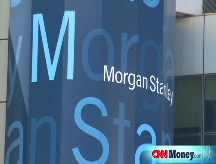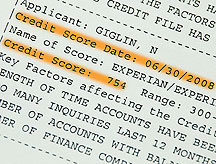Home buyers: On or off the fence?
The government is bailing as fast as it can to try to stabilize foundering housing markets. How will home buyers respond?
| 30 yr fixed | 3.80% |
| 15 yr fixed | 3.20% |
| 5/1 ARM | 3.84% |
| 30 yr refi | 3.82% |
| 15 yr refi | 3.20% |
NEW YORK (CNNMoney.com) -- Financial markets are in turmoil, home prices are still falling, foreclosures are accelerating and job losses are jumping. Some say the best time to buy a house is when there's blood in the streets, and that certainly seems true now.
But tell that to homeowners in fear of losing their nest eggs by buying homes in severely declining markets. Already weak home sales may be in even more jeopardy because of financial market chaos.
And now, after weeks of interest rates declining, they seem to be headed up again.
"Nobody wants to catch a falling knife," said Dean Baker, co-director of the Center for Economic and Policy Research. "There will probably be something of a [fallout of buyers] but I don't think there will be a collapse."
Home sales have actually been very steady all year and perhaps even stronger lately, thanks largely to seven straight weeks in which interest rates went down.
The rate drops has been especially substantial since the government takeover of the mortgage giants, Fannie Mae (FME) and Freddie Mac (FRE, Fortune 500), a little more than two weeks ago. For many consumers, that had offset their fears over the panic on Wall Street.
The interest rate decline brought 30-year fixed rate loans to an average of 5.78% last week, down from 6.4% at the end of August, according to Freddie Mac. That saved home buyers more than $250 a month on $200,000 mortgages.
But, starting about the middle of last week, rates started to turn and by Tuesday of this week, the 30-year was nudging up past 6.26% again, according to Keith Gumbinger of HSH Associate, a publisher of financial information.
"It's a very perilous time in the financial markets right now, and investors are feeling very exposed," he said. "That makes for a very uncertain rate environment."
The nearly half-point interest rate jump turned off buyers very quickly, according to Steve Habetz, a mortgage broker with Threshold Mortgage in Connecticut. "Things quieted down almost immediately," he said.
Glenn Kelman, founder of the online brokerage house Redfin, reports that the financial ills have not had a heavy impact on sales for his company - as yet.
"I don't know if it's some kind of manic energy before our demise, but we've been really busy," he said. "Most of our clients are undeterred by the financial market problems. The drop in interest rates was more telling than the turmoil on Wall Street."
Still, Kelman has had some deals die as a direct result of the events of last week. One of his firm's brokers, Febe Cude, said, "A couple of clients have expressed their reservations about continuing the process."
One of her clients, Cory Claassen, a 32-year-old attorney, along with his wife, an engineer in her mid-20s, waited to buy a house in the Seattle area until they saved enough for a down payment. They recently found one they loved. It was priced at $795,000 and they offered $745,000 and are waiting for a counter-offer, which they may not now accept. They're getting cold feet.
"My concern, even before last week, was that the market could go down," said Claassen. "[Those events] made me fear a more precipitous fall. I'm also worried about jobs and the economy. We have no debt, good assets and if something happened now, we could always move to a smaller apartment. We wouldn't be able to do that if we bought a house."
He hasn't completely decided whether to blow off the deal or not. One factor is that the market chaos is affecting sellers as well. They're getting nervous about being able to sell near the prices they want in a timely fashion.
Sellers have been much more willing to cut their prices lately, according to Kelman. They're finally figuring out what the current market value is, and that has resulted in an average discount from listing price of 10.7% for his buyers. "That's enormous," he said.
Nicole Harkin and her husband, Brent Lattin, were very concerned about interest rates after they settled on a house they wanted to buy in the District of Columbia. They decided two weeks ago to hold off on the purchase until they saw what the Fannie-Freddie takeover would do to rates.
She's a financial analyst with the General Accounting Office and he works for the Federal Reserve, so they definitely have their fingers on the nation's financial pulse. They were encouraged immediately after the takeover as rates fell. But last week's turmoil have convinced them to postpone their purchase indefinitely.
"We didn't want to waste a half million dollars," said Nicole. "I think home prices have to correct some more." Their plan now is to wait out that correction and buy later at - they hope - a lower price.
The other concern homebuyers face is the health of the overall economy. Nationally, the economy is shedding 100,000 jobs a month. With financial institutions laying off workers and banks preserving capital by cutting back on all sorts of loans, the impact of the financial market crisis could be cruel.
Those layoffs have an immense trickle down effect. Investment bank employees were receiving huge bonuses all during the boom years. They spent it on consumer goods, dining and entertainment and, yes, homes.
"I wouldn't be buying a condo in Manhattan if I were an investment banker," said Dean Baker. "And if I owned one, I might be thinking about selling it."
It's going to take a while for consumers to process all that has happened lately, according to Jim Gillespie, CEO of Coldwell Banker, one of the nation's largest real estate brokers.
"Consumers have been subjected to a barrage of information," he said, "Once they grasp what has happened, they'll understand that mortgage interest rates are still near historic lows, that they have a lot of homes to choose from, and price corrections have improved affordability."
Whether that will be enough to overcome people's natural reluctance to buy as home prices continue to fall, and their investments and jobs remain threatened by one of the most chaotic financial situations since the Great Depression, is still in question. ![]()




